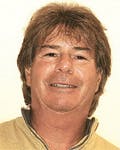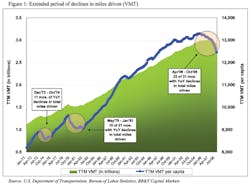ADN's Fusion '07 creates dialogue about form, fit and function, returns.
LAS VEGAS — Although shop owners continue to demand form, fit and function, manufacturers are not "flush with funds," says John Washbish, president of customer relations management at Affinia. "We're moving as rapidly as we can to OE form, fit and function. We can't take the money issue away...because we can't make changes without it."Washbish was one of four panelists in the Vendor Forum, a highlight of Fusion '07, the Automotive Distribution Network's first Network International Convention since the merger between Parts Plus and Independent Auto Parts of America (IAPA) in 2005. During the forum, jobbers, shop owners and others asked vendors questions on the key topics affecting their businesses today. The form, fit and function issue — the topic of numerous aftermarket discussions — was top of mind for participants.
"About 15 to 20 years ago, the distributors and jobbers were most anxious for us to consolidate, which we did," explains John Gethin, president and COO of Standard Motor Products and another panelist. "In the last six or seven years, we have made a 180 and everything had to be packaged like it was coming off the vehicle."And though panelists are not opposed to this, it takes time and customers who support the lines 100 percent.
In addition to getting the product, shop owners need help training techs to use aftermarket parts in the first place. Education on product availability might be the answer, says Gethin.
"The engine management line followed by the temperature control line are two lines that are moving quickly toward the OE dealer in terms of product availability," he notes. "I think the answer is continued training at the installer or at the jobber level so they know we have the products. We have to do a better job of communication."
A fair but firm standard return policy is another request from some jobbers.
"Some of the fuel pumps returned to us aren't even Delphi," says Frank Ordoñez, vice president of Delphi Corp. and president of Delphi Product & Service Solutions. "Every part that comes back means there's a customer in the service bay who is unhappy. I think it's incumbent upon us to address this as an industry for the sake of the consumer."
Ordoñez continues that the aftermarket eventually will pay for those excessive returns (and dissatisfied customers).
However, Washbish doesn't think the industry will be able to agree on standard return policies. He also notes the overall consumer perception that "everything is returnable."
"The other part to the problem is that most of what we get back that's alleged defects has nothing the matter with it at all," he states. Perhaps if everyone were more honest about returns, there'd be fewer alleged defects and returned products could be inspected, re-boxed and sent out the door, he adds.
Bob Eagen, vice president of aftermarket sales at Federal-Mogul, adds that the manufacturer also has an issue with returned fuel pumps, but cites the problem of some customers switching to another vendor "every time we get forceful" about returns.
Eagen also addressed the issue of the aftermarket's image, saying the fix is creating a product line with problem solutions attached to it, such as Federal-Mogul's Moog line. Being part of the aftermarket, he adds, gives them the advantage to research and improve on OE parts.
The shop's future
For Washbish, the "battle is in the bay," and the health of the independent technician is one of his main concerns. Many shops present at the Vendor Forum expressed that their business is tough, and that means your business is tough too, he says.
"As an industry, we need to focus on the independent installer. From the grass roots, we have to make this an attractive industry for people to join," Washbish offers, adding that drawing quality technicians is the industry's biggest task right now.
"As distributors and jobbers, we need to help the independent technicians and teach them business skills," he continues. "If we lose all the independent installers, most of you won't be in this room either."
In the end, the industry must shore up its efforts in order to have a successful future.
"I think we have had our lunch eaten by the OE dealers on numerous product lines," says Gethin. "I think the industry is in decent shape, but there's a lot of room for improvement."
More than 1,400 independent auto stores, service dealers, WDs and vendors attended Fusion '07 in February in Las Vegas.
About the Author


